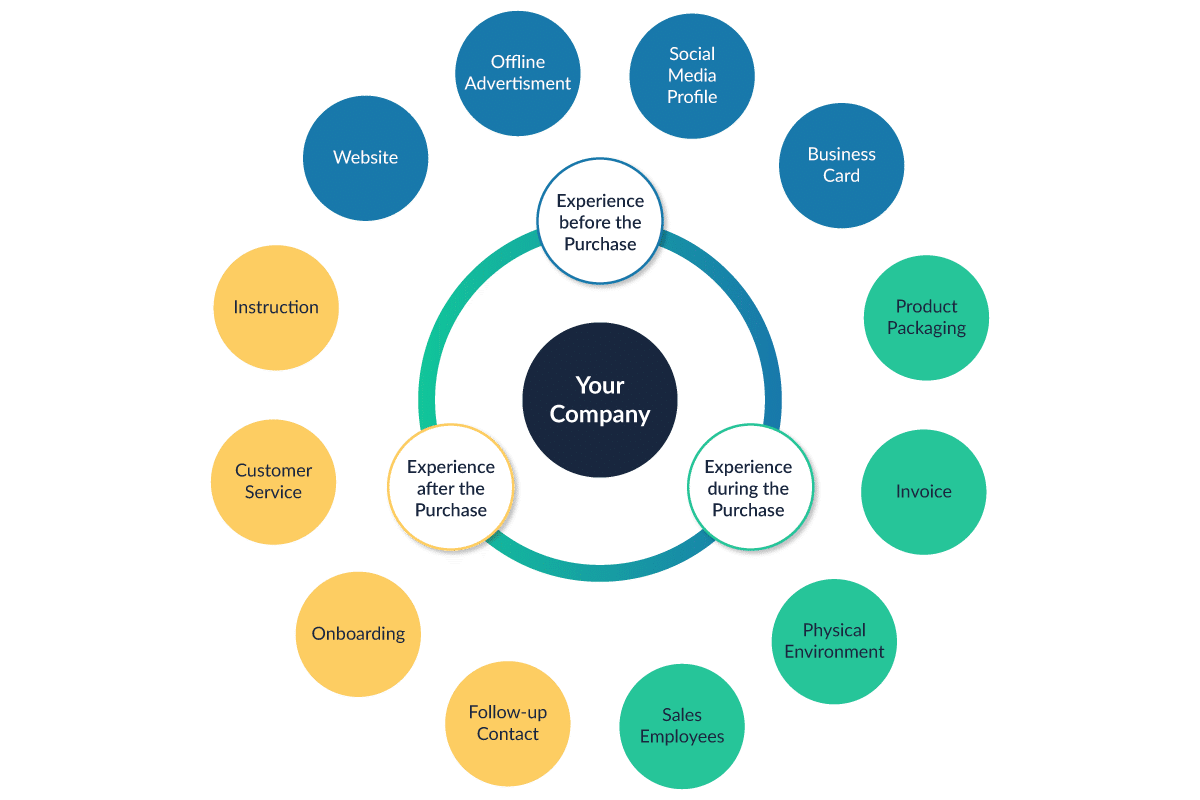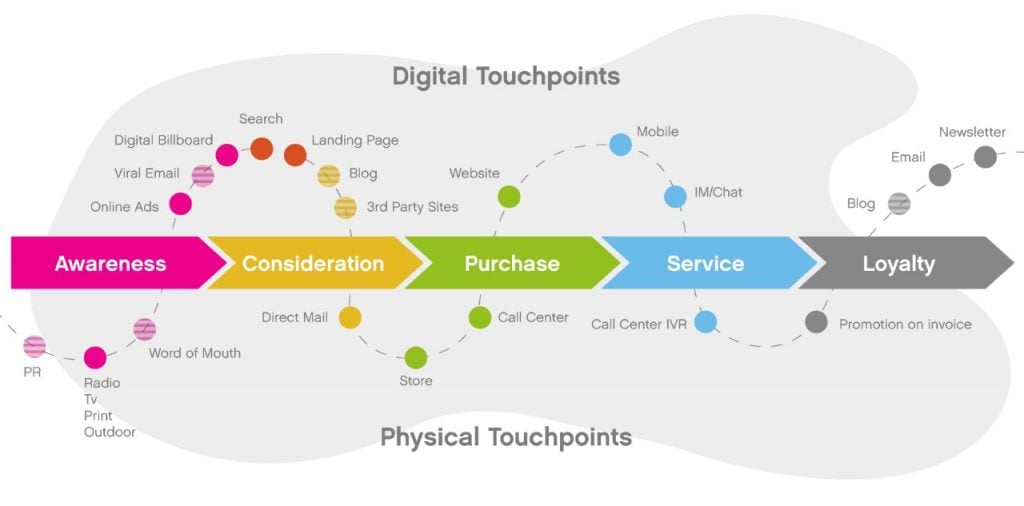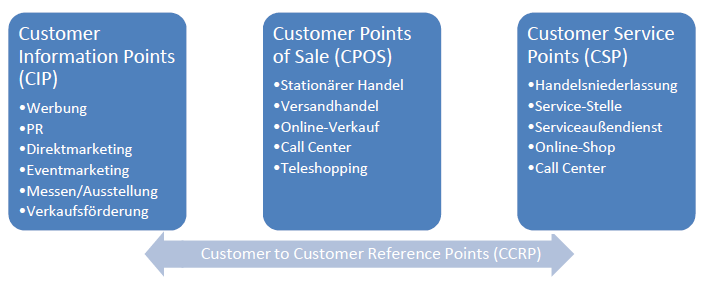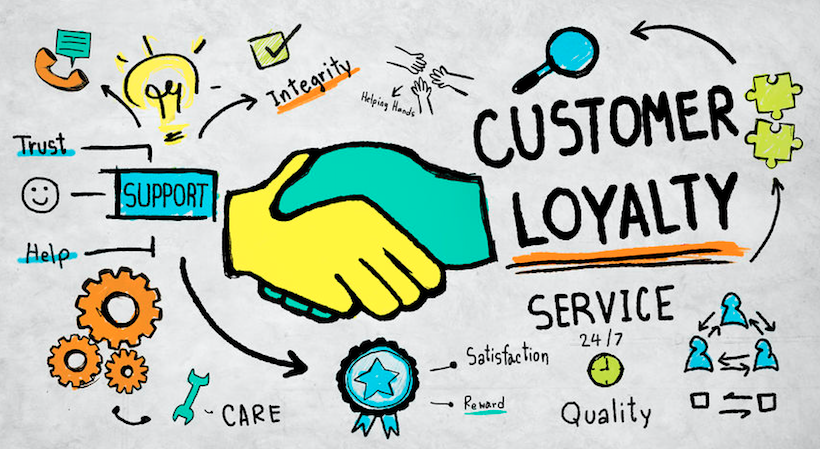Defined as a contact or influential action, every touchpoint is a message that collectively forms part of your customers’ experience. But why are they crucial, and how can you enhance your customer journey?
From beginning to end, your customers will see and come across your brand both off- and online, from your advertisements to your logo window displays or posters, your website or app, online reviews or social media sites.
Determining and improving the touchpoints along the way and getting feedback will help strengthen their experience. It’s a good opportunity to strengthen your customer journey. Take note that happy customers will get you more sales and leads.
What do customer touchpoints mean?
Customer touchpoints are a medium through which customers and brands engage with one another. There’s a broad spectrum of touchpoints, identified and unidentified, that is composed of pre-purchase, during purchase, and post-purchase communication. The type and medium of communication at each of these stages differ.
Why are consumer touch points important?
Determining customer touchpoints needs the brand to think from the customers’ point of view. Analyzing points that will enable the customer to reach out to the brand and determine what they seek is the key to knowing the customer’s perspective.
There are instances when customers engage with your brand, and they can be important in forming perceptions. For instance, when a customer has a positive experience at a touchpoint, they are more likely to come back.
Meanwhile, if a touchpoint is negative, that could drive them away. Thus, you must carefully consider all your customer touchpoints and work to strengthen them. Making positive customer experiences can establish loyalty, draw new customers and boost sales.

The Customer Is Always Right: Why Startups Should Pay Attention To CX Data
Customer touchpoint examples
Here are some of the best customer touch point examples you can use.
Pre-purchase stage
- Company website
Your company website is an essential customer touchpoint before purchase. It is the first place customers will learn about your services or products. Your website should communicate what you have to offer efficiently.
Ensure your site is simple to navigate and offers concise and clear information about your products or services. On top of that, make sure your website is mobile-friendly, as more customers are buying things on their smartphones.
- Referrals
Referrals can come from family, friends or other people who have had a positive experience with your brand. They could also come from social media posts or online reviews. Referrals are strong as they offer prospects social proof that your brand is dependable and that they’ll be happy with their purchase.
3 Powerful Ways to Build Social Proof and Make Your Business Stand Out
- Social media
Over half of all consumers reported that they would not buy without first checking social media. That’s because social media offers a simple way to collect information from different sources.
Social media also enables consumers to get opinions and ask questions from their followers and friends. Hence, social media is a vital touchpoint for any business wanting to connect with its customers.
- Online ads
These online ads can appear on search engine results, social media platforms and websites. Often, those online ads are personalized based on the user’s location and browsing history.
- Press releases
Press releases are a crucial way for brands to communicate their newest products and news to potential customers. They can learn about new products by reading PRs, know how they work and determine whether they’re interested in buying them.
Hence, a press release plays a vital role in the customer journey, and brands must guarantee that their PRs are informative and engaging.
- Out-of-home and print campaigns
Out-of-home and print campaigns are one of the most typical pre-purchase touchpoints, and they could be highly efficient in raising awareness and interest in a service or product. Nonetheless, they have limitations. Print campaigns are often costly to create and distribute, and they could be easily missed by consumers who are not actively searching for them. Meanwhile, out-of-home campaigns are extremely visible but can be expensive to implement on a big scale.
- Video
A well-made video could introduce customers to your brand and experience what you have to offer. It can also help establish credibility and trust, which are vital for converting leads into customers.
But take note that not all videos are made the same. Your videos should be informative, engaging, and relevant to be efficient. They must be well-made and simple to watch.

Purchase stage
- Point of sale (POS)
POS is the first and last physical interaction of the customer with a business. Hence, it is important to make sure that this touchpoint is efficient and positive as possible.
A simple way to do that is to have a POS system that can accept different payment forms, like mobile payments, cash, and credit cards. The POS must also be user-friendly so customers can navigate the checkout process.
- Customer reviews
Potential buyers will consult reviews before they buy, and positive reviews can be a substantial factor in conversion. Reviews can also help establish credibility and trust with potential customers.
To maximize its effect, businesses must ensure to motivate customers to leave feedback and make it simple for them to do so. Reviews can be gathered through surveys, online platforms, or directly on the company website.
- Brochures
A brochure is a customer touchpoint during the purchase process, offering potential customers information about a service or product. Flyers are often distributed in retail shows or trade shows, and they can be sent through the mail.
While most brochures just offer basic details about a brand and its offerings, other companies use brochures to make a more personal connection with their target audience.

Ignoring Website Accessibility: Could It be Killing Your Conversions?
Post-purpose stage
- Customer loyalty program
A customer loyalty program is a good way to keep customers engaged and go back for more. Loyalty programs support customers to keep doing business with the company by providing exclusive rewards, early access and discounts on new products.
Also, customer loyalty programs help create brand awareness and make a community around the service or product.
- Community management
Community management could involve reaching out to customers through forums, social media and other online platforms. Businesses can create relationships and build loyalty by engaging with customers in such spaces.
- Billing
Customers should get a timely and accurate bill to prevent frustration and confusion. Also, the billing process must be as efficient and simplified as possible. Any problems or delays with billing could cause customers to be annoyed and may even bring their business elsewhere.
As such, brands should get their billing right. By offering timely and accurate bills, brands can help to make sure their customers are happy and continue to buy with them in the future.
- Emailing lists
It involves sending information or promotional emails to customers regularly. For instance, emails can include helpful tips, new product announcements, discounts, etc. Brands can also encourage repeat and loyalty purchases by staying in touch with customers through email.
You can use an email validation service to create emailing lists, as it can be a valuable tool for brands to maintain contact with their customers.
On top of that, that touchpoint offers customers a simple way to stay updated on what is new with the company. Therefore, emailing lists can be a relevant tool for businesses to keep in contact with their customers.
- Customer feedback surveys
After your customer makes a purchase, numerous customer touchpoints can help guarantee their satisfaction.
Surveys can be an efficient way to collect feedback. Surveys could be emailed to customers after getting their purchase or provided in the packaging.
Conclusion
Remember that creating a positive customer experience is vital to success in today’s competitive marketplace. By making sure that your customers have a positive experience at each touchpoint, your business can develop loyalty and repeat business.






